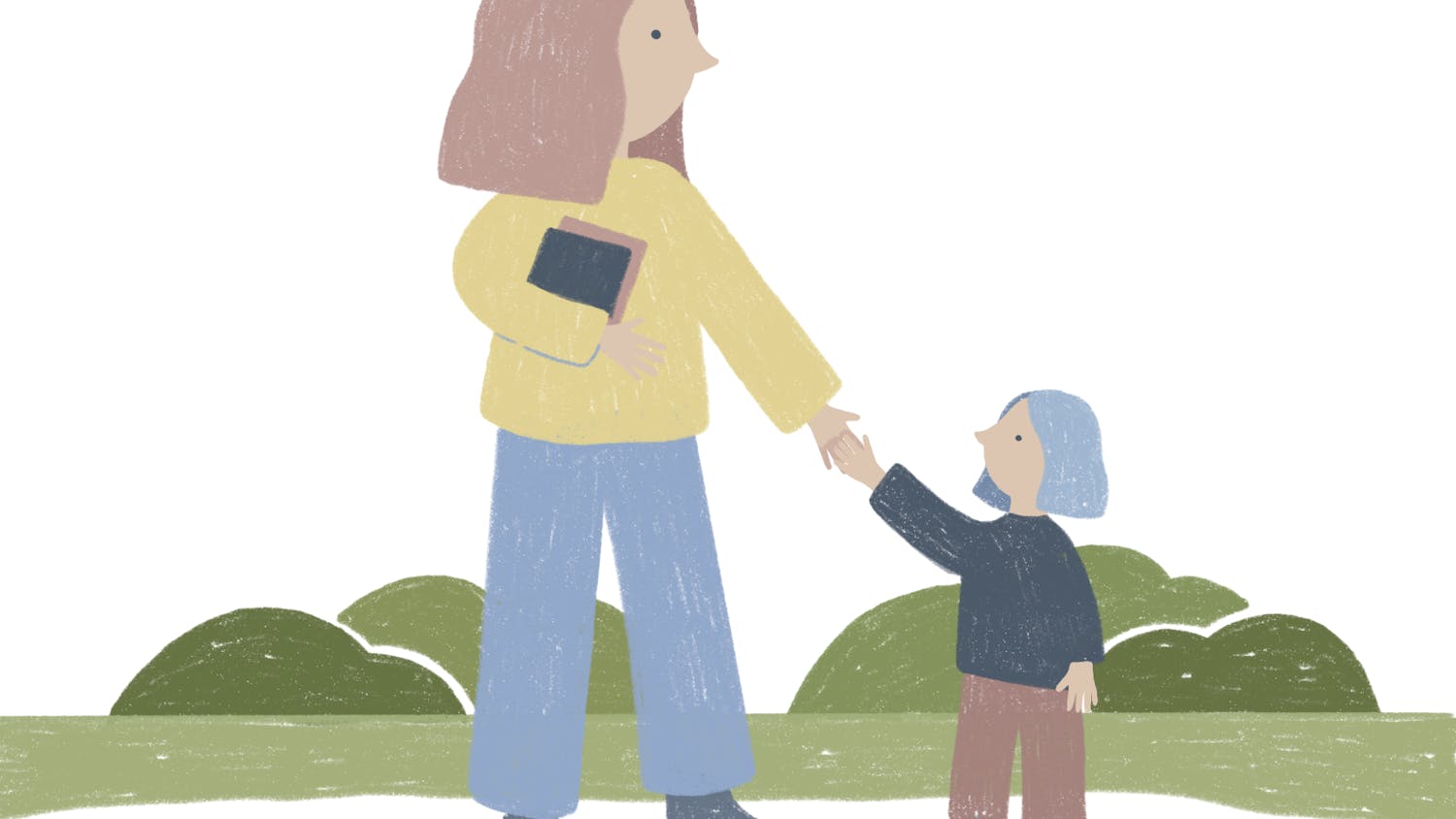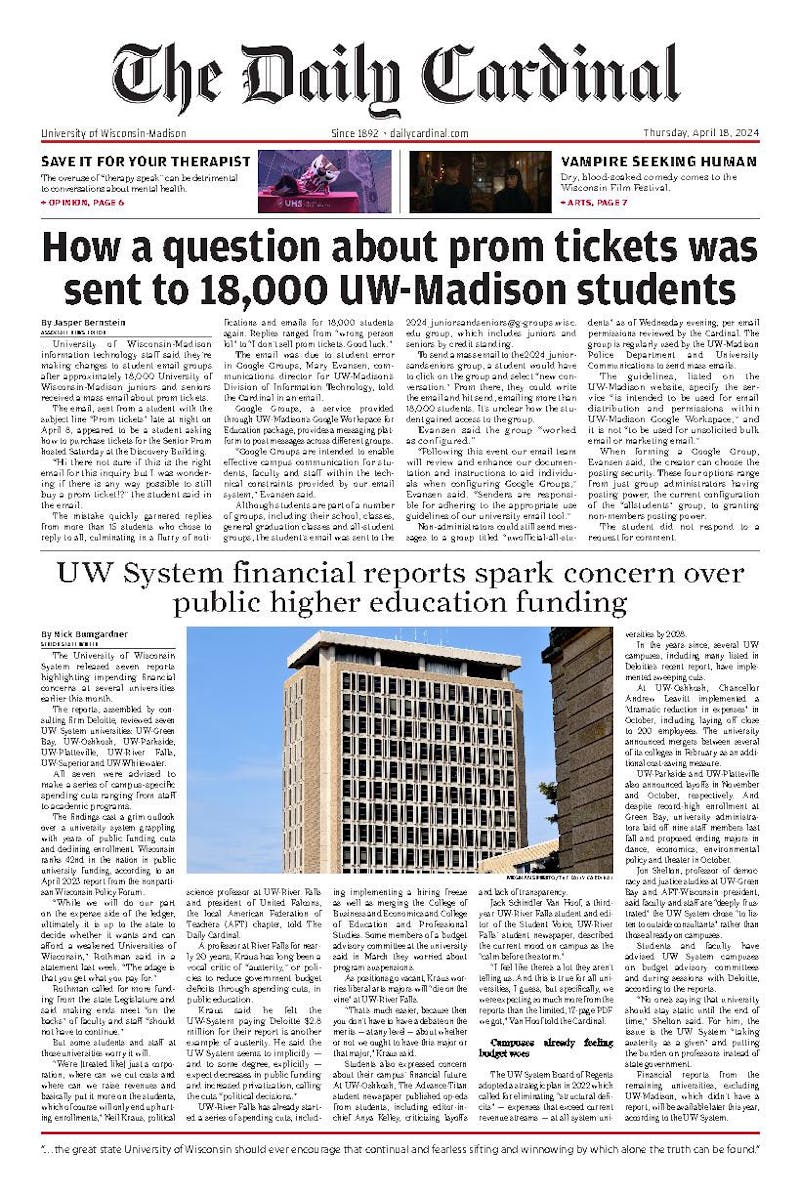Among a myriad of other injustices, the overall health of our nation faces stomach-sinking danger, and the threats to U.S. sexual, reproductive and women’s health are substantial. But we, as students at UW-Madison, are in a privileged position to access services and education to protect our minds and bodies and it will become increasingly important to protect and support them as threats to public health rise.
With the Trump administration already making headway on repealing the Affordable Care Act and undermining Planned Parenthood, the next four years may look like a dark tunnel for the many people that rely on the services these programs provide to keep their minds, bodies and families healthy.
Students have access to classes that are dedicated to ensuring we have the baseline knowledge to defend and take care of ourselves. Student organizations like PAVE and Sex Out Loud are dedicated to protecting sexual health and well-being on campus. Trained medical professionals at UHS can provide essential services for us. While certain individuals at UW-Madison may face a variety of barriers to utilize these programs—like a lack of time or resources, or lower level of comfort with medical or education programs—those who can make it a priority to engage with them should.
It’s important to note these programs and services are by no means perfect or a replacement for the vital services that are being slashed by the new administration. Dr. Mary Landry, a Gynecologist at UHS, voiced concerns regarding the possible impact of these cuts.
“Our country has had the privilege of having a safety-net organization that provides women’s health care to people who either their barriers are historically lack of insurance, or need for privacy, where they either can’t or don’t feel comfortable accessing care with their private providers,” Landry said. “I cannot imagine how the health care systems that currently exist can possibly absorb the work that Planned Parenthood does for the masses of people that they have provided care for.”
While we have access to these services as students, post-graduation health and the health of our non-student friends and peers remains a large concern. The response to recent cuts to health programs has by-and-large been fearful and reactionary. Landry noted the changes in demand for long-term contraceptive services at UHS following the election.
“Immediately after the election we had lots and lots of women who were very motivated to obtain contraception that would be long-acting, so that they didn’t feel vulnerable to changes in availability,” Landry said.
So, while we undoubtedly face alarming danger to our nation’s access to health services, there are people and organizations, while not as heavily visible as the threats, that are fighting for our current and future wellbeing. UW-Madison Gender and Women’s Studies professor and public health professional Jenny Higgins noted a reactionary awareness from the field.
“My sense is that after a bit of despondency, there was this immediate, almost immediate response from UHS, Planned Parenthood, my colleagues who work in Obstetrics and Gynecology, of ‘Alright it’s go time. We really have to step it up,’” Higgins said. “And the CEO for the organization I am on the board for said, ‘We all have a little time for mourning, and then we gotta get back to work.’”
Char’Lee King, events coordinator for Sex Out Loud—a campus organization that provides condoms, educational sessions for the sexual well-being of students and other events and programming centered around sexual health—emphasized that their organization will also keep doing what it takes to provide resources and knowledge that students want and need, while trying to be adaptive to changes.
“Unfortunately, we will just have to wait and see how this plays out. But we will be a support system even before this plays out,” King said “We will work to get the message out and make sure that people have the resources that they need because that’s our job.”
With the knowledge that we have resources and people on our side working to keep us and our communities healthy, we can move to take active steps in protecting, engaging with and improving these programs and services. Knowledge and education—about your health, the health of others and how to protect it—is indispensable moving forward. In regard to learning inequity in health as well as other areas, Higgins notes that taking a Gender and Women’s Studies class can offer an important perspective.
“I think we can offer, as we always do, some tools for which to view the world, or some lens with which you can view the world. The lens of certainly gender inequality, of social inequality, of justice,” Higgins said.
Landry also repeatedly emphasized the importance of continuing to ask questions and make changes, however small, even when faced with immense challenges.
“It’s so overwhelming to people that they become paralyzed with some significant grief over [Donald Trump’s presidency]. Instead, to try and break it down into pieces, that each of us has the potential to impact, because it’s all those little pieces that are transformative,” Landry said.
King said the most important thing students can do is engage with the program and speak out—especially when they have wants or needs that need to be met.
“The best way to support us is to show up to our events, request our programs, be present,” King said. “If we know what students want and we know what students are looking for, the resources that they may need that are coming up in the next couple of months or years, we can definitely plan to bring those resources to campus.”
It’s easy to read the headlines and panic; things are scary right now. It’s valid to fear that you are in danger, or the health of those you care about are in danger. But during these four years, there are people here for your health. Progress can be catalyzed when it comes from communities with minds and bodies that are in a state to move forward.
Take care. Utilize these services. Give them your feedback. Get Involved. Educate yourself. Take care, so you can move forward and resist.
What are your thoughts on the looming changes to women’s health policy? Please send questions, comments and concerns to editorialboard@dailycardinal.com.






